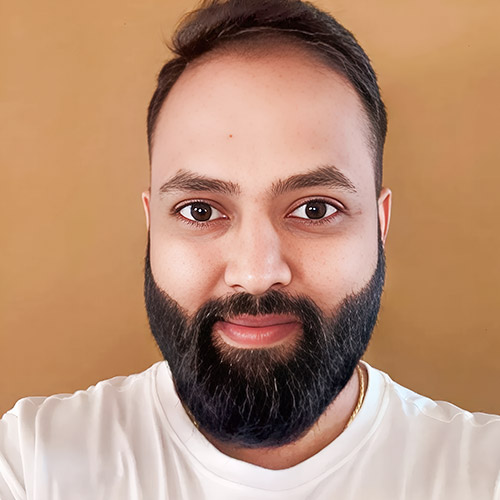
Nitin Jadhav
PostgreSQL Contributor, Senior Software Engineer @ Microsoft
Nitin Jadhav is a Senior Software Engineer with extensive experience in database systems, particularly PostgreSQL. Currently working at Microsoft, Nitin has been part of the Azure Database for PostgreSQL team for the past few years. His primary responsibilities include onboarding new major and minor versions of PostgreSQL and integrating extensions into the managed database. Additionally, Nitin has been involved in handling customer issues, including analyzing and resolving various database corruption problems, and contributing to the PostgreSQL community as needed. Before joining Microsoft, Nitin worked at EDB, where he focused more on contributing to the PostgreSQL community.
POSETTE 2025 Talk
Debugging Data Corruption in PostgreSQL: A Systematic Approach
Data corruption in PostgreSQL can severely impact database integrity, leading to service disruptions, data loss, and incorrect query results. This talk introduces a structured framework for diagnosing and addressing such issues using PostgreSQL’s built-in tools, Linux utilities, and advanced debugging techniques. Drawing from real-world scenarios, this framework highlights practical methods for detecting errors like "Could not read block," "Cannot freeze committed xmax," and "Could not locate valid checkpoint."
The talk will also propose enhancements to PostgreSQL to simplify debugging and increase resilience. Suggestions include improving error messages to provide richer context, extending pg_verify_checksums to offer detailed block-level diagnostic reports, and introducing built-in debugging interfaces for easier analysis of backend state and block data.
By the end of this session, attendees will have a clear methodology to detect and resolve data corruption in PostgreSQL, gain insights into preventive measures, and explore ideas to enhance PostgreSQL’s support for such investigations. This talk aims to empower DB admin, developers, and PostgreSQL hackers alike, offering tools, strategies, and suggestions to ensure long-term reliability and improved debugging capabilities.
Speaker
Interview
About the Speaker
-
Tell us about yourself: career, family, passions
I am Nitin Jadhav, a Senior Software Engineer with a deep passion for database technologies and open-source development. Throughout my career, I have experience in working with PostgreSQL and other database systems like SQLite. I reside in Bengaluru with my wife and our one-year-old daughter, and I cherish the time spent with my family. My interests include coding, reading, and traveling, which allows me to explore new places and cultures.
About the Talk
-
Tell us about your talk. Why did you choose this topic?
My talk is titled "Debugging Data Corruption in PostgreSQL: A Systematic Approach". I selected this topic because data corruption is a crucial issue that can significantly impact the integrity and reliability of any database system. Given PostgreSQL's widespread use as an open-source database, many users may benefit from learning these systematic approaches to identify and resolve corruption issues within their environments.
About PostgreSQL
-
What is your favorite PostgreSQL extension or tool? And why?
My favorite extension is pg_duckdb. PostgreSQL is one of the most widely used databases and has been named DBMS of the year in the past. It excels in OLTP workloads, but when it comes to OLAP, it can be slow. DuckDB, on the other hand, is gaining popularity for its performance with analytical workloads. So, what should a PostgreSQL user do if they want to run OLAP queries with better performance using their existing PostgreSQL data? Switching to DuckDB isn't necessary. Instead, they can simply install the pg_duckdb extension. By toggling the duckdb.force_execution setting, users can choose to run their queries on either PostgreSQL or DuckDB, which is incredibly convenient and efficient.
-
PostgreSQL is open source, did that ever help you in anyway and how?
Yes, one important point to mention is that if I was working on a project at my previous employer and it didn't get committed before I left, I can still continue working on it after joining a new company. This way, my earlier efforts don't go to waste, and I can complete the task.
About POSETTE & Events
-
What motivated you to speak at this year’s POSETTE: An Event for Postgres?
I am thrilled to have the opportunity to speak at this year’s POSETTE: An Event for Postgres. Over the past few months, I have been deeply involved in identifying and fixing data corruption issues in Azure Database for PostgreSQL. I believe sharing my experiences and insights might benefit others facing similar challenges. What excites me most about this event is that it’s held online, making it accessible to a wider audience. I am thoroughly enjoying the entire process, from the receiving the graphics of the talk to the speaker interviews and the recording sessions to begin soon. It just feels incredibly rewarding and fulfilling to be part of such a well-organized and dynamic event.
-
What other PostgreSQL events in 2025 are you excited about and why?
I am thrilled about PGConf.dev 2025 because it primarily focuses on developer talks. I am eagerly looking forward to some of the sessions listed on their website.
Join the conversation
Use the hashtag #PosetteConf
